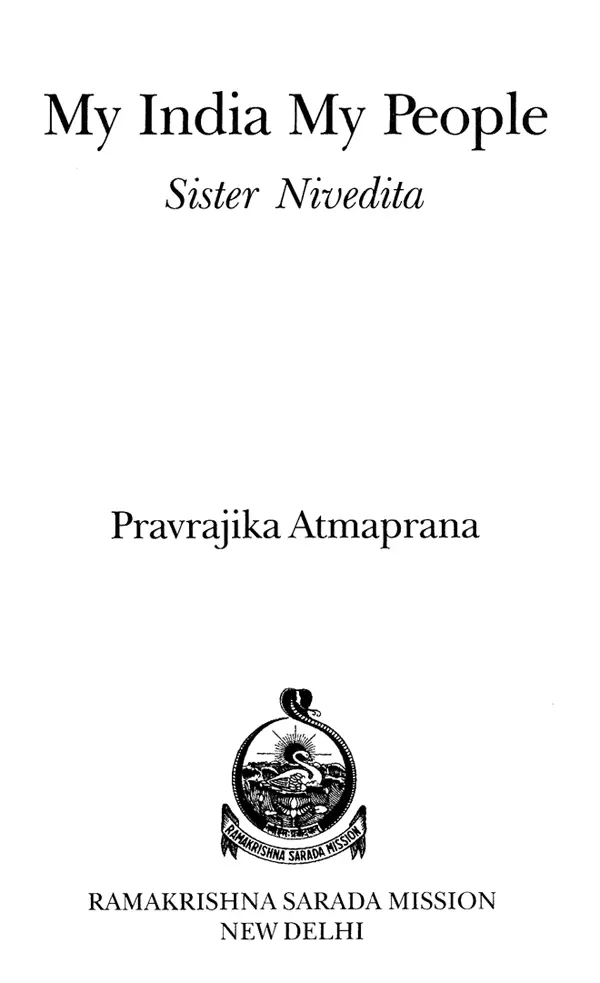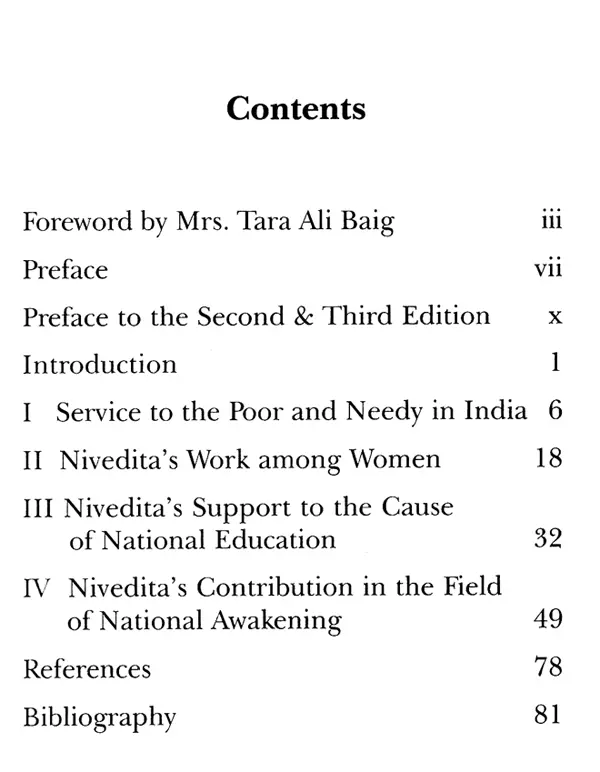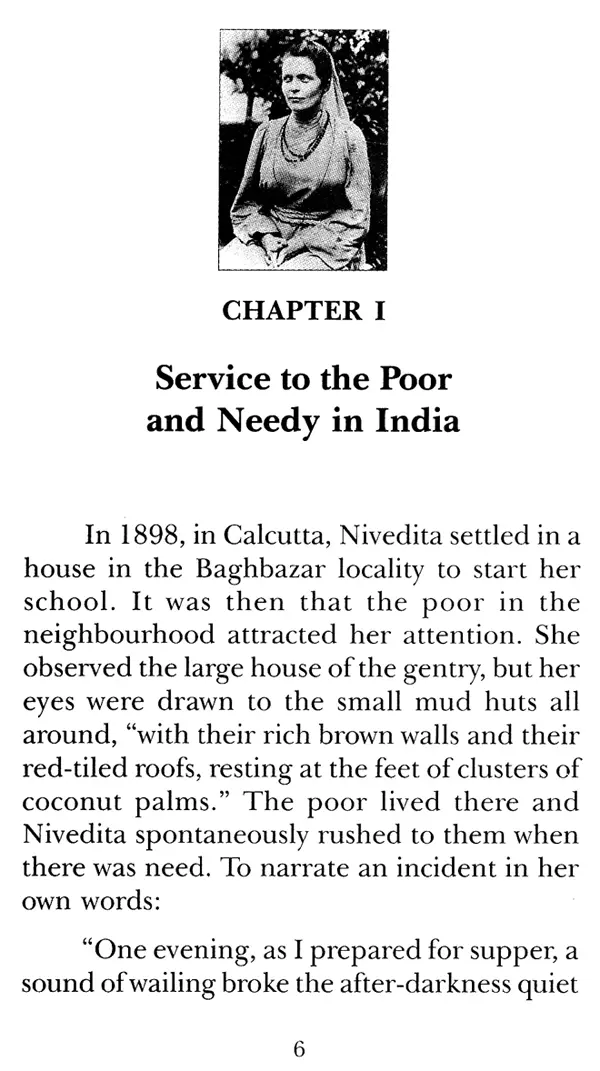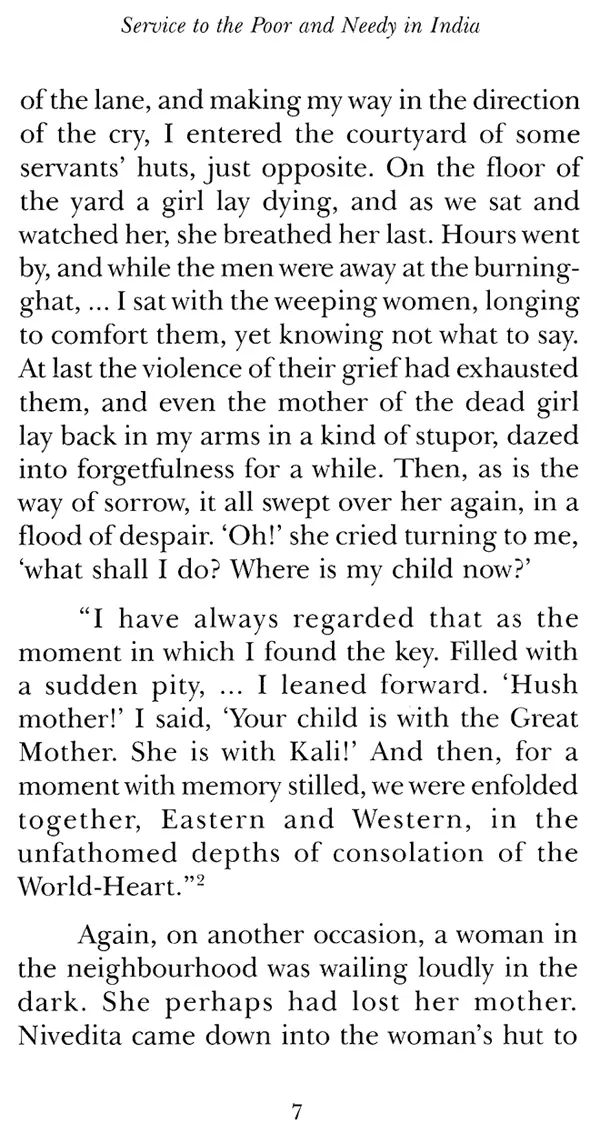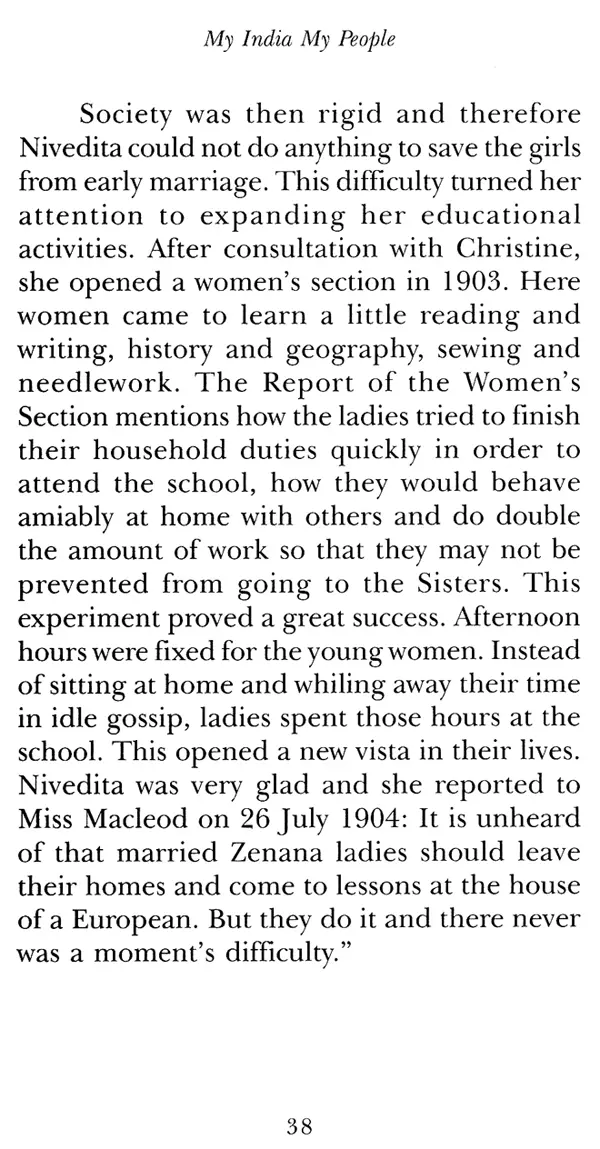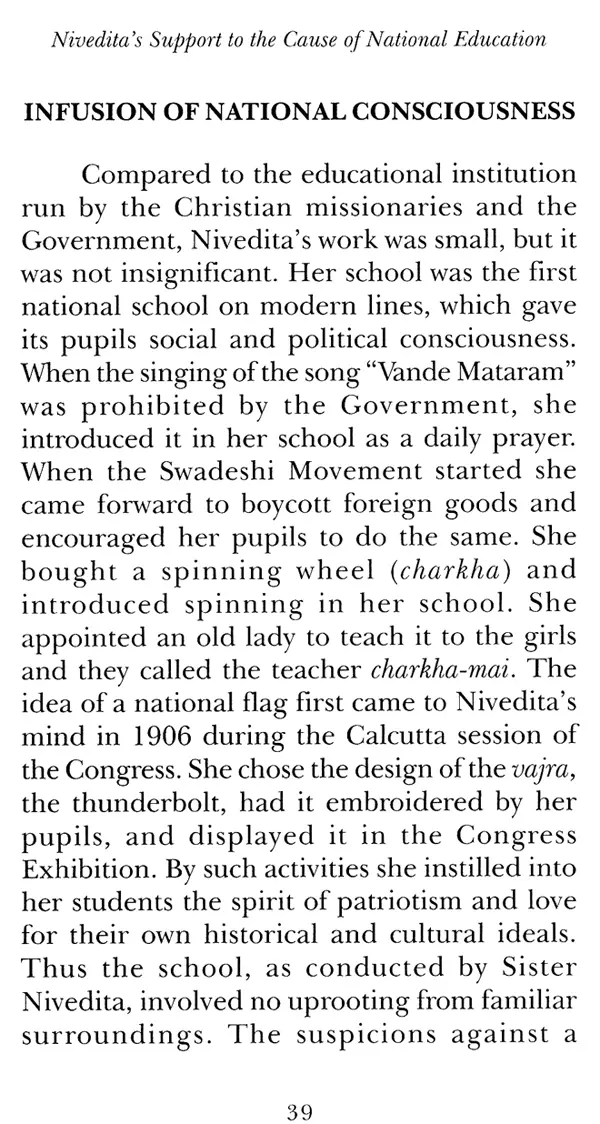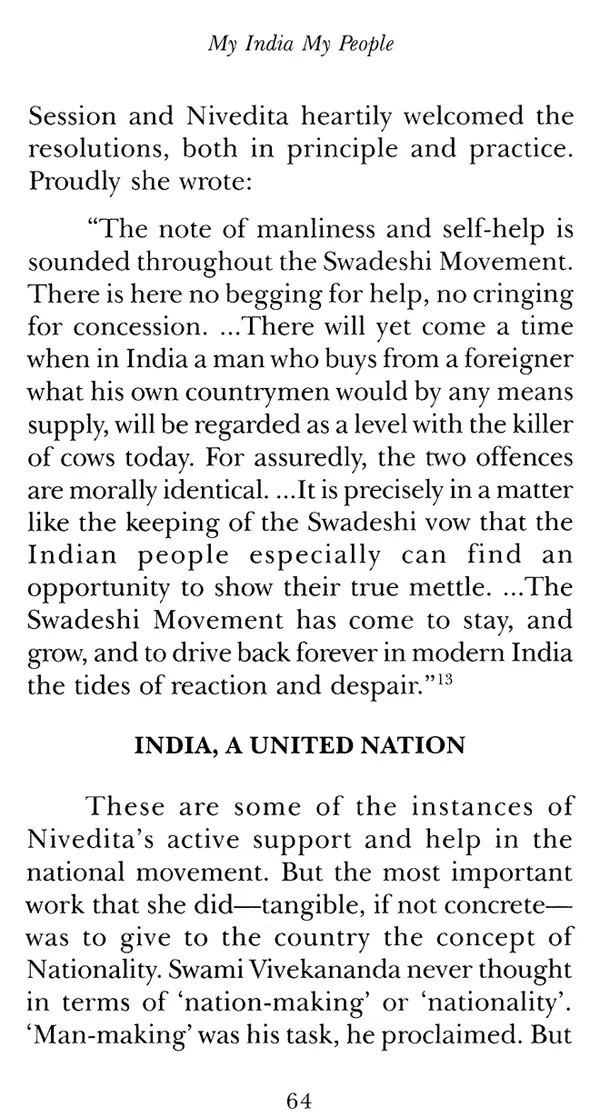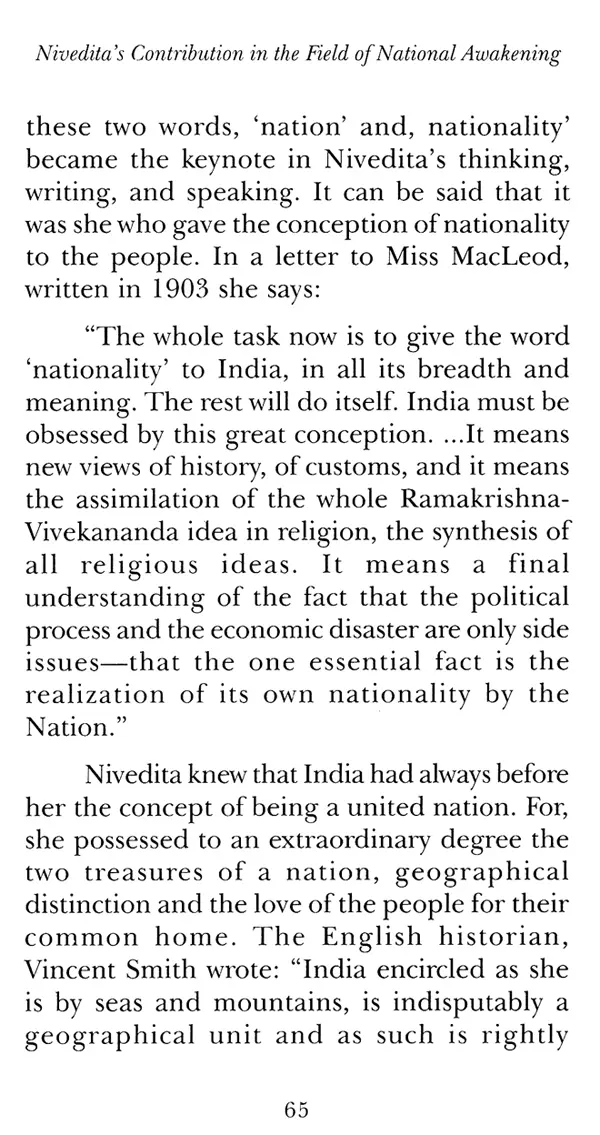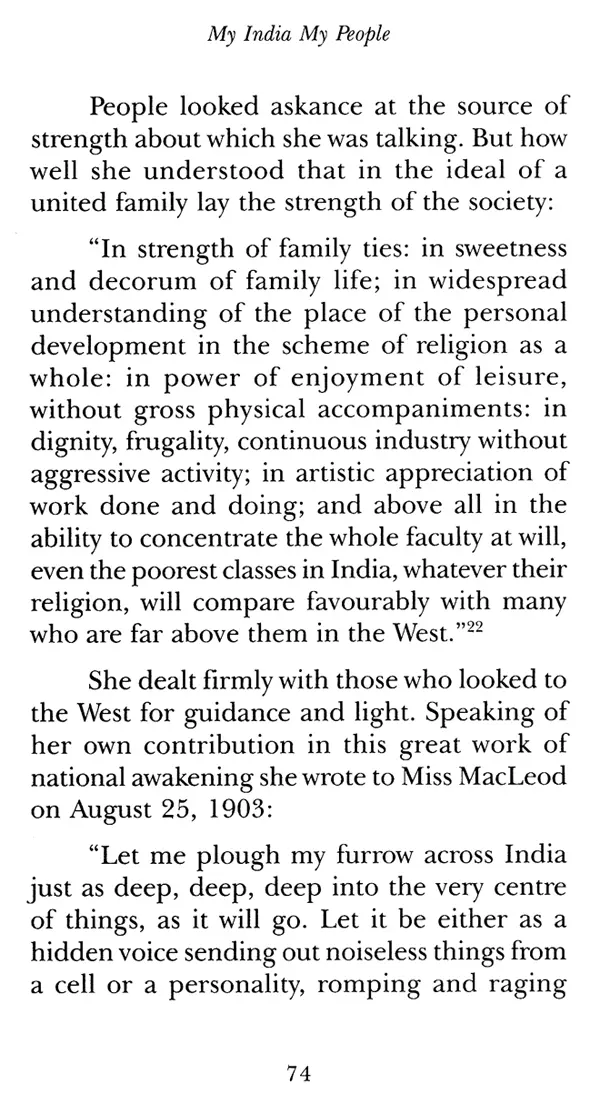
My India My People - Sister Nivedita
Book Specification
| Item Code: | UBA851 |
| Author: | Pravrajika Atmaprana |
| Publisher: | Ramakrishna Sarada Mission |
| Language: | English |
| Edition: | 2011 |
| ISBN: | 9788186617762 |
| Pages: | 81 |
| Cover: | PAPERBACK |
| Other Details | 7.00 X 4.50 inch |
| Weight | 80 gm |
Book Description
Nothing could be more noble than the life of Margaret Elizabeth Noble-Sister Nivedita. Pravrajika Atmaprana's sensitive recording of the dedicated services of Sister Nivedita brings out in moving detail how this dynamic educationist from Ireland led the life of a karmayogin in India, and understood profoundly that sacrifice is the essence of service. Coming from the Western world, her absorption into the mainstream of Indian life and thinking was a remarkable manifestation of "ancient love".
The account of her life during the plague in Calcutta, oblivious to the disease and sordid surroundings in which she had to work was proof of her extraordinary love for her adopted country. Swami Vivekananda, the great founder of the Ramakrishna Mission, recognizing her unusual perception of the soul of India, set her on the path of service with just two powerful words, "Love India".
The Complete Works of Sister Nivedita and her biography have been published by the Ramakrishna Sarada Mission Sister Nivedita Girls' School, Calcutta. Her letters were published in 1982 by Sankari Prasad Basu in Calcutta. Now, this small book focuses on her dedicated services to India.
India, marching forward with strides today should remember those who never wavered in their hope and belief that India would one day break off her political bondage and be independent. Nivedita came to India. at the turn of the century, a crucial period of the country's history. She was one of the luminaries who brightened the horizon of India when even Indians thought that the country was doomed to sink into abysmal darkness forever.
Sister Nivedita's life-work found fulfilment in her dedicated service to India and her people. Her spirit shone through whatever she did, wrote or said and that made her lovable and memorable. Broadly speaking, her work in India may be divided into four types: her service to the poor and needy, her work among women, her support to the cause of national education, and her contribution in the field of the Indian national awakening.
In the Bhagavad Gita it is said: "As do the unwise, attached to work, act, so should the wise act but without attachment, desirous of the welfare of the world." This means that an ideal selfless karma-yogi has to act with as much zeal and fervour as an attached and ignorant person, but he has to be detached from the fruits of his actions; he has to live only for one desire, namely, universal welfare. Thus selflessness is the dharma of a karma- yogi. It is the one central excellence in virtue, of which truth, simplicity, purity, courage, steadfastness and sincerity different facets. Sister Nivedita possessed these virtues in an intense degree. Her whole life was a patient following of the one thread of giving up Rabindranath Tagore, with his poetic vision, recognised this quality in her and summed her greatness in the following words: are so many "The life, which Sister Nivedita gave for us, was a very great life. There was no defrauding of us on her part, that is, she gave herself up fully for the service of India. She did not keep anything back for her own use. Every moment of every day she gave whatever was best in her, whatever was noblest. For this she underwent all the privation and austerity that we associate with a person. Her resolve was this and this alone-that she would give only that which was absolutely genuine; she would not mix self with it in the least; no, not hunger or thirst, profit or loss, name or fame; fear nor shrinking, nor ease nor rest She was, in fact, a Mother of the people. We had not seen before an embodiment of the spirit of motherhood, which passing beyond the limits of the family, can spread itself over the whole country. We have had some idea of the sense of duty of man in this respect, but had not witnessed wholehearted mother-love of women. When she uttered the words 'Our People', the tone of absolute kinship, which struck the ear was not heard from any other among us."
